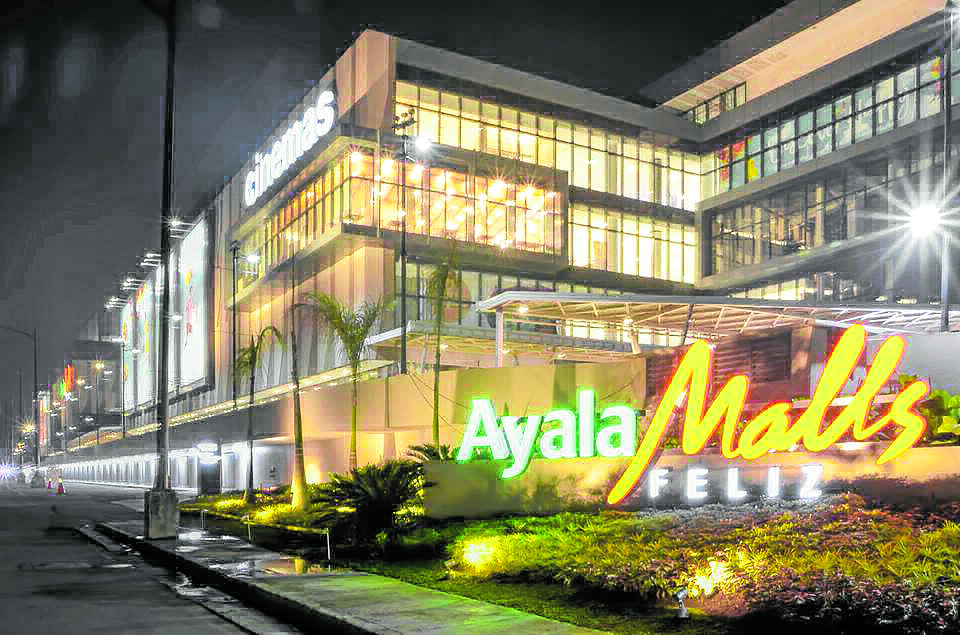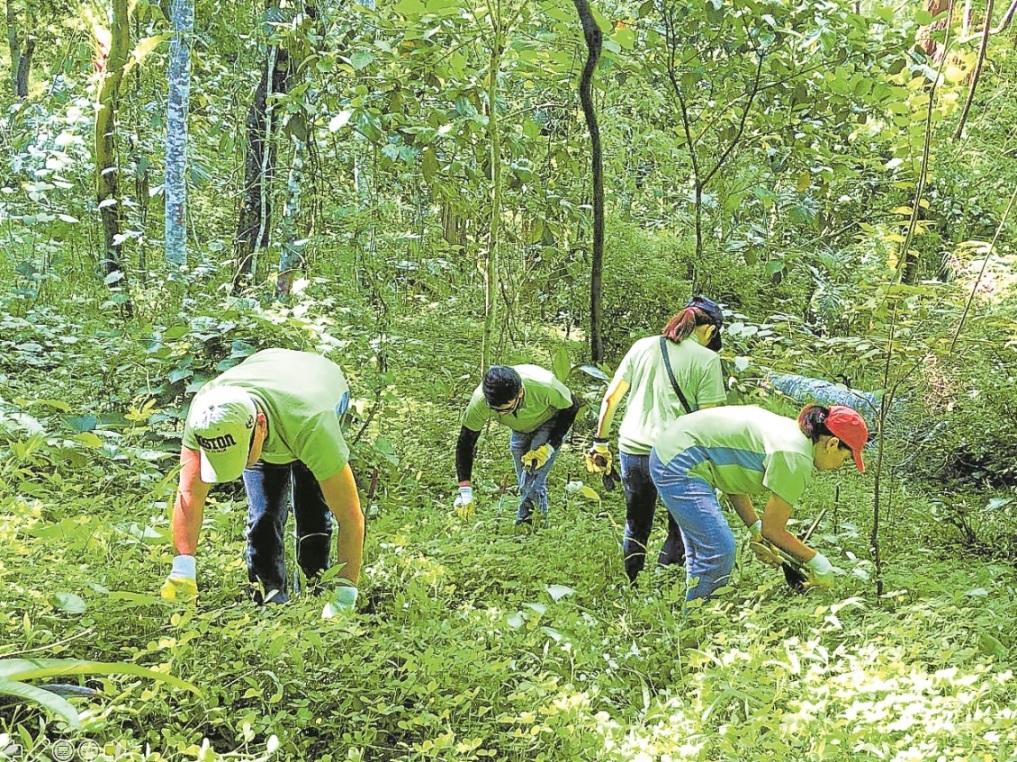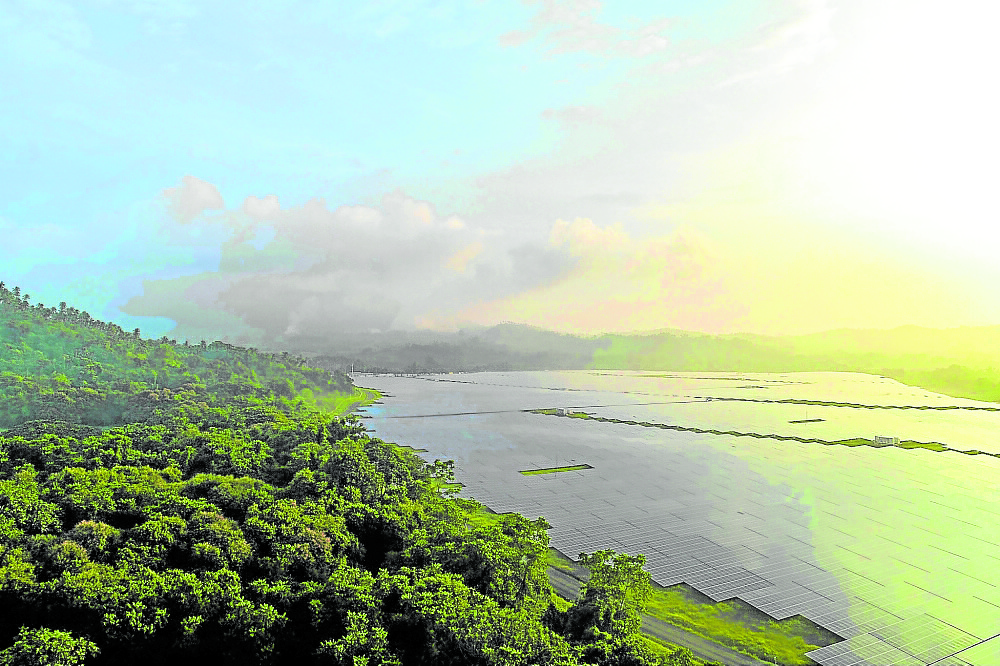Renewable energy sourcing and the management of carbon forest are the two main methods Ayala Land Inc. (ALI) used to achieve its goal of carbon neutrality. Thanks to these efforts, the company is ready to forge ahead and set new and bolder targets to offset its carbon emissions in the years to come.
For ALI, it is imperative to set and declare a goal as this sparks the identification of specific measures to weave into its plans and operations in order to meet the objective.
In a webinar conducted by The Philippine Daily Inquirer for Project Rebound, Manny Blas, ALI Vice President shared: “Small and large companies really have to set a goal and it’s not just about taking the initiative to be more environmentally friendly in their operations. We must set a measurable goal that says our carbon footprint has to be of a certain level by a certain date, because that will drive all our other initiatives.”

More than 80 percent of ALI’s commercial gross leasable area are now using renewable energy.
ALI is expected to hit its ultimate goal of 100 percent carbon neutrality for its commercial properties’ scope 1 and 2 emissions by 2022— five years since it announced this optimistic vision. This means that the company fully mitigated adverse impacts on the climate as it ran its commercial business in the last five years. Scope 1 and 2 emissions refer to greenhouse gas (GHG) emissions coming from the use of fuel (for generators and vehicles) and electricity consumption in areas controlled by ALI, respectively.
“In 2017, we set a goal to be carbon neutral by 2022 for Scopes 1 and 2 in commercial properties, which includes only our offices, malls, hotels and resorts. We are projected to achieve this by the end of the year and now our aim will be to attain carbon neutrality for the entire ALI group by 2030,” Blas shared.
ALI has likewise aligned with its parent company Ayala Corporation in the latter’s bold target of net zero carbon emissions by 2050 which supports the COP26 global environment pact. The company has been tracking, among other environment, social, governance (ESG) metrics, its greenhouse gas (GHG) emissions as early as 2009.

ALI’s carbon forests, which span a total area of 586 ha, have become key focal points for its sustainability initiatives.
Under its carbon neutrality program, the company will reduce and offset an estimated 230,000 t-CO2e this year through renewable energy sourcing and forest protection and restoration. More than 80 percent of ALI’s commercial gross leasable area are now using renewable energy and as a design standard, natural cooling and energy saving measures are integrated into the company’s developments in order to substantially reduce controllable emissions.
ALI likewise recently signed a partnership with AC Energy Corporation to partially supply ALI’s renewable energy requirement for its malls, offices and hotels until 2050. AC Energy’s sustainability hub in Alaminos, Laguna houses a 120-megawatt solar farm and is located beside one of Ayala Land’s carbon forests. These are 586 hectares of woodland reserves found throughout the country—from Laguna, Cebu, and Davao City to Palawan and Sicogon Island—that act as key focal points for the group’s sustainability and renewable energy initiatives. With consistent nurturing, about 80% of the total carbon forest area are now covered with trees compared to less than 60% in 2018. In the last three years, more than 100,000 trees were planted in ALI’s carbon forests.

Ayala Land’s Carbon Forest and AC Energy’s Alaminos Solar
All these sustainability ethos, initiatives, and points of view have rightly earned ALI an “A-”leadership rating on climate change by the Carbon Disclosure Project, and a membership in the SAM Sustainability Yearbook 2021 of S&P Global for achieving a score in the top 15 percent of the industry. Last year, it was also granted the 3G ESG Championship Award for the Philippines by Cambridge IFA, and a special citation at the Excellence in Ecology and Economy Awards by the Philippine Chamber of Commerce.
“At ALI, we hope to focus on our journey to net zero emissions by constantly measuring our impacts and making sure that specific initiatives are done to reduce our carbon footprint to support a low-carbon economy and future,” Blas said.







